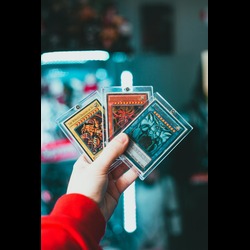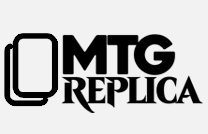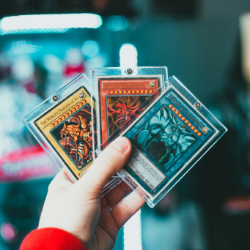
Discover how MTGreplica enhances every mtg proxy tournament by providing authentic-feeling proxies that bring creativity, fairness, and excitement to every match.
Short Summary:
This blog explores the growing popularity of mtg proxy tournament events and how MTGreplica contributes to a balanced, engaging gaming experience. It discusses why players host proxy matches, the benefits of using quality replicas, and how ethical play fosters community spirit. You’ll find insights on preparation, fair competition practices, and FAQs for hosting proxy-friendly sessions successfully.
The Evolution of Proxy-Based Magic Play
Competitive Magic has always been about innovation, strategy, and fun. However, as card prices climbed over time, many players began exploring new ways to enjoy the game without limiting creativity. That’s when the idea of mtg proxy tournament formats took off, allowing enthusiasts to compete using replicated versions of rare or expensive cards.
MTGreplica has played a leading role in this shift by designing professional-grade proxies that replicate the look, weight, and texture of official cards. These well-printed proxies empower players to experiment with any deck type they imagine, making tournaments more inclusive and affordable for everyone.
Proxy tournaments are no longer seen as casual alternatives; instead, they’ve become the foundation for balanced, skill-focused play within local clubs and communities.
How MTGreplica Shapes Better Tournament Experiences
MTGreplica influence extends beyond craftsmanship it defines how community gaming feels. Each proxy produced is tailored to meet precise size standards, color brightness, and card thickness, ensuring comfort and equality during group matches.
Players who participate in mtg proxy tournament sessions using MTGreplica cards often report smoother shuffling, cleaner edges, and consistency that matches authentic cards. This precision makes every event feel professional yet inclusive.
Additionally, MTGreplica long-standing dedication to fairness encourages clear labeling of proxies, building trust between organizers and players. Transparency allows everyone to know which decks include reproduction cards, eliminating any sense of unfair advantage.
Why Players Prefer Proxy Competitions
Most proxy tournaments invite fans from all experience levels, from newcomers learning to draft to veterans perfecting combo decks. These players value MTGreplica work because it keeps tournament accessibility high while still maintaining the integrity of Magic gameplay.
With mtg proxy tournament setups, anyone can test dream builds that might otherwise cost thousands of dollars to assemble. This freedom promotes true innovation an essential part of the game’s creative heart.
Even collectors benefit by keeping their rare originals safe at home while still enjoying gameplay replicas on the table. For many, proxy tournaments represent the perfect balance between affordability, creativity, and competition.
Guidelines for Hosting a Successful Proxy Event
For gaming organizers or casual groups, organizing proxy tournaments can be straightforward with a few responsible steps. Confirm that all players understand the event’s casual or testing nature, and announce clearly that replica cards are being used for fun rather than profit.
MTGreplica recommends using high-quality card sleeves to keep decks uniform and minimize wear. Also, balance deck lists to ensure fair competition and avoid gameplay dominated by single powerful strategies.
Encouraging sportsmanship, creative deck design, and open communication ensures your proxy tournaments remain welcoming, competitive, and endlessly fun.
The Value of Fair Play in the Proxy Community
The success of mtg proxy tournament relies on collective honesty. MTGreplica emphasizes that fair play protects the integrity of this growing format. Labeling and disclosing replicas builds lasting trust among both casual circles and serious competitors.
Through responsible use, the brand has helped redefine how Magic enthusiasts experience their favorite decks uniting creativity, recreation, and accessibility in one inclusive culture.
Proxy formats, once considered niche, now symbolize how passion for the game can overcome financial barriers, giving every player the chance to compete fairly and confidently.
FAQs
How are proxy tournaments different from official competitions?
Proxy tournaments use high-quality replicas for friendly or testing matches, while official sanctioned games require verified original cards.
Can MTGreplica proxies be used in local league play?
Yes, many community clubs allow them for casual practice sessions where all players agree beforehand.
Why do players love proxy tournaments?
They remove cost restrictions, encourage testing, and make Magic accessible to every enthusiast, regardless of card value.
Do MTGreplica proxies affect gameplay quality?
Not at all. The replicas are carefully printed to mimic authentic weight, texture, and balance for seamless competitive play.
How can I host my own proxy competition?
Print decks using MTGreplica, set clear community rules, label proxies visibly, and foster an atmosphere of friendly experimentation and fairness.







